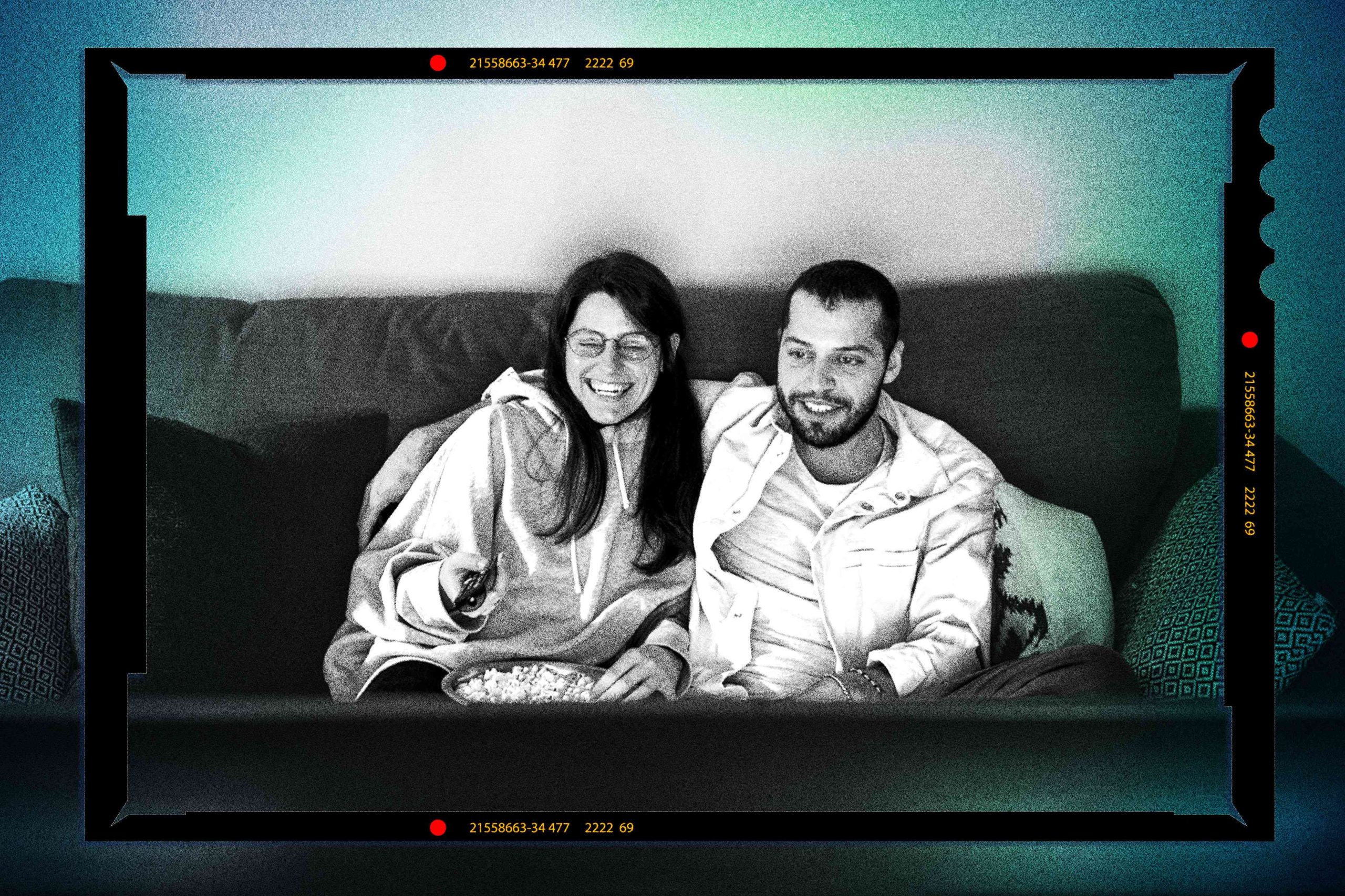Movies are one of the most popular forms of entertainment, so it may be no surprise that your favorite genre can reveal something about who you are. While it’s certainly not the only thing that determines what movies you watch, your personality and other traits can go a long way toward explaining your preferences.
Throughout this article, I’ve dug into available research on personality and the movies to explore some of the reasoning behind why certain people like comedy, sci-fi, horror, or other genres. This is primarily based on the Big Five Personality Test traits.
While there is certainly more research to be done, as a media psychologist I’ve shared my insights to give you an idea of what people will prefer when they decide to pick out a movie. Let’s see what your movie preferences say about you!
Horror
Horror is among the most studied genres in psychology, so we have a pretty good idea of who likes movies, such as Get Out, The Shining, and Saw.
Horror fans tend to be more neurotic, less agreeable, and less extroverted, so people who are more anxious but less outgoing and compliant like this genre. Perhaps people who are more anxious like horror movies because they can experience them in the relative safety of a movie theater or their homes.
In addition, horror fans tend to be high sensation seekers with lower empathy, so they enjoy watching things that will get a rise out of them and are less bothered by scenes of violence because they don’t identify with the on-screen victims.
For instance, when Jack Nicholson’s character comes after his wife with an axe in The Shining, people who love horror will be especially thrilled but will also be less threatened by his actions. Not surprisingly, many people who like horror the most are men.
Romance
People who like romance movies, like Titanic, The Notebook, and Pride and Prejudice, are extroverted, agreeable, and not particularly open to experiences. That is, they’re outgoing and easy to like, but don’t tend to be receptive to a variety of experiences or situations.
People who gravitate toward romantic movies also tend to like their movie-going experiences to be hedonic, or pleasurable, in nature so they don’t have to think too hard. For example, people who swoon when Jack (Leonardo DiCaprio) draws Rose (Kate Winslet) in Titanic, may especially like this scene for its undemanding but sensual nature.
Many fans of romance can be said to have a warm and understanding nature, something that seems to be borne out by the type of movies they prefer.
Drama
Drama films are a broad category, but movies like The Shawshank Redemption, May December, and Good Will Hunting all have deep themes that make us think. People who like drama tend to be agreeable and extroverted, so they’re likable people who tend to be amenable to a variety of ideas.
So whether they are witnessing Will (Matt Damon) ask a guy “How do you like them apples?” in response to getting a girl’s number in Good Will Hunting or seeing the difficulty Andy (Tim Robbins) has in prison in The Shawshank Redemption, they are willing to go with it and see where the scenario leads them.
People who appreciate drama also like to have a eudaimonic, or meaningful, experience with movies. They don’t just watch movies for pleasure but for feelings of sympathy and warmth. They want to watch movies to understand others and think about the human experience.
Comedy
Comedies, including Legally Blond, Ferris Bueller’s Day Off, and Elf, attract people who tend to be agreeable and have low openness to experience. So people who are fans of comedy may be amenable to the ideas presented in these movies but aren’t especially open to engaging with challenging situations.
Most importantly, perhaps, for comedy lovers is an enjoyment of hedonism. Comedy movies have it in abundance and watching, for instance, Buddy (Will Ferrell) eat spaghetti and syrup or throw snowballs at a bunch of bullies in Elf requires the pure enjoyment of pleasure.
Animation
While animation is a category that’s often associated with children, it draws people from across the age and gender spectrum. People who are high in agreeableness tend to like animated films because they value close family ties.
People who love animation also tend to be more neurotic. The reason for this could be similar to the reason people who like horror movies are more neurotic: anxious people like experiencing new things in a safe environment like a movie theater. But people who like animation may be more empathetic than those who like horror movies, making animation easier for these individuals to take.
For example, in Inside Out when Bing Bong (Richard Kind), Riley’s (Kaitlyn Dias) imaginary friend, fades out of existence, people who like animation may feel very badly for Bing Bong. At the same time, though, they likely appreciate the fact that they got to experience this poignant moment in the safety of a movie theater.
The Classics
Classic films are less explored in psychology research about movies and personality. In fact, there’s very little literature about them. But there’s been just enough to at least claim that people who appreciate classics, like Some Like it Hot, Casablanca, and Gone with the Wind, score high on openness to experience. So these are likely creative people who like to be involved with cognitively challenging genres.
It’s also probably safe to say that people who like classics love eudaimonic movies. That is, they are looking for movies that make them think. For instance, Gone with the Wind has a variety of topics that fans could ruminate on, including comparing and contrasting the choices characters in the movie make with the choices we’d make today.
Science Fiction
Science fiction, such as Blade Runner, The Martian, Interstellar, and Arrival, can offer incredible takes on where we’re headed as a species. The people who love these movies tend to be open to experiences. As a result, it’s no wonder that these individuals enjoy both the intellectual stimulation and the aesthetic experiences provided by these movies.
For example, in Blade Runner, people may enjoy both the intellectual work of trying to decode what’s going on with Harrison Ford’s character and the beautiful aesthetics of the strange city he inhabits.
People who like sci-fi also are high sensation seekers, which is no surprise. If you think of all the incredible things you can see in a sci-fi movie, many of which you can’t see in real life, it makes sense that sensation seekers would gravitate to this genre.
Action/Adventure
Action/adventure is the second-most studied genre after horror, and action/adventure fans have some things in common with horror fans. Particularly, people who gravitate to action/adventure movies, like the James Bond franchise, the Indiana Jones movies, and the Avengers franchise, tend to be high sensation seekers and male, just like those who love horror.
However, there are differences, too. For example, people who love action/adventure are low in neuroticism, so they don’t tend to be very anxious. They also tend to seek films out for affiliative or aggressive uses. For example, in The Avengers when the final battle of New York happens, many action/adventure fans are bound to get a thrill. For some, this may have to do with their ability to enjoy this action with their friends and meet interpersonal goals; for others, this may help them release aggression through the film.
Fantasy
Fantasy, exemplified by films like The Princess Bride, the Harry Potter series, and the Lord of the Rings franchise, is a lot like science fiction. It tells incredible stories about fantastical people. But in this case, the science is replaced by magic.
Like sci-fi fans, fantasy fans tend to be high sensation seekers who are open to experiences. As a result, when Frodo (Elijah Wood) and his friends seek out friends at Rivendell in the Lord of the Rings franchise or Harry (Daniel Radcliff) finally casts his first spell in the Harry Potter series, people who love fantasy are riveted. Fantasy fans are also lower in extraversion, so these individuals tend to be imaginative, reflective people who are interested in many things but aren’t necessarily outgoing.
Sports movies
Finally, we have sports movies, such as Creed, Moneyball, and King Richard, which attract people who are lower on openness to experience and neuroticism, and higher on conscientiousness, extraversion, and agreeableness. So people who love sports films, are not anxious but also don’t crave a lot of variety or stimulation. They’re also outgoing, affable, and tend to be more responsible.
These associations, outside of agreeableness, tend to mirror the relationship between people who have these traits and like physical activity. So, for example, it would seem that whether a fan is watching Creed to see boxing or participating in a boxing class, these individuals are scratching a similar itch.
Keep in Mind
It’s worth remembering that though we present these movies as distinct categories, there’s a lot of overlap, between sci-fi and fantasy, say, or between horror and action. Still, although this rundown doesn’t account for all the reasons we like specific categories of movies, it gives us a great start to recognize who likes which genres. Perhaps it’ll even help you pick your next movie.





